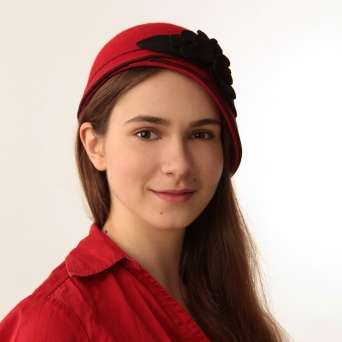Bellini’s Norma has musical beauty and a heart-wrenching plot that has earned it a well-deserved place in the standard repertoire. It also has a small core cast, with Norma herself dominating most scenes, so its success depends on its singers. The Bayerische Staatsoper’s current cast doesn’t excite, and the orchestra also delivers a lacklustre performance. The result is a dramatically effective but musically disappointing evening.
Jürgen Rose’s direction, sets and costumes don’t point to a specific setting. The weapons indicate that the story is taking place in roughly the modern day, and the costumes suggest an association between the Druidic society and the Middle East. Rose wisely doesn’t use this to make a heavy-handed political point, choosing instead to focus on the interpersonal drama in the opera. And that comes across well, thanks to a cast of good actors and attention to Personenregie. The vaguely surreal atmosphere created by the stark set and eerie, shadowy lighting (brilliantly designed by Rose himself and executed by Michael Baner) counterbalances the contemporary clothing. This story is simultaneously current and fantastical.
At the centre of it stands Sondra Radvanovsky as Norma. Her singing in the role is a not for all tastes. Her voice can be harsh, but it has a fabulous presence that effortlessly fills the Nationaltheater, and she manipulates the volume and quality of her sound with great artistry. Her crescendos and decrescendos are stunning. However, her overly wide vibrato approaches a wobble and muddles her coloratura. This lack of precision made her “Casta Diva” a disappointment. She pushed her voice less and achieved a much cleaner, more pleasant sound with more flexibility during the second half of the opera. Dramatically, she was consistently convincing in her portrayals of love, rage and despair.
The rest of the cast turned in able but unexciting performances. Mika Kares’ Oroveso was mostly inaudible in Act I but showed off a pleasant sound and good legato in the second act, when he didn’t have to fight the orchestra so much. As Pollione, Massimo Giordano failed to use his voice to its full potential. He had moments when it opened up and bloomed to reveal a wonderfully pingy tone, but most of his singing was dull and sometimes flat. His no-holds-barred acting, which involved a lot of falling at women’s feet, was fun to watch. Ekaterina Gubanova impressed the most as Adalgisa, with a pure tone and moments of extraordinary intensity. She sounded particularly lovely in “Mira, o Norma”, where her voice blended well with Radvanovsky’s despite their very different qualities.
In the opera’s smaller roles, Golda Schultz (Clothilde) and Francesco Petrozzi (Flavio) both sang solidly and acted believably. Schultz’s voice is clear and powerful, and Petrozzi’s has a bright, youthful sound that is fun to listen to. Norma’s silent children are also important to the story and the staging, and Timon Pal and Florian Schön showed just the right blend of filial affection and fear of their mentally unhinged mother.
Despite a lively overture with a nice showing from the percussion section, the Staatsorchester failed to impress. Under Paolo Carignani’s baton, they lacked the agility that makes for good bel canto playing. They also entirely drowned out the choruses. The second half of the opera was musically better than the first, but the overall impression was still underwhelming.
Norma is a very dramatic tragedy, and the Bayerische Staatsoper’s production is well-staged and well-acted enough to pack an emotional punch. But if it’s the musical delights of bel canto you’re after, this show will disappoint.




